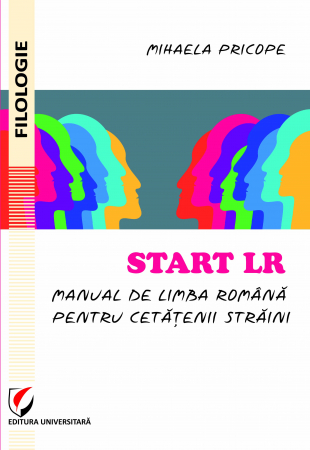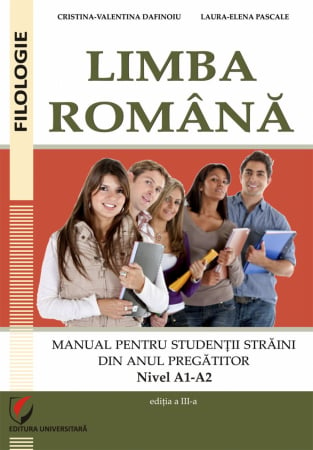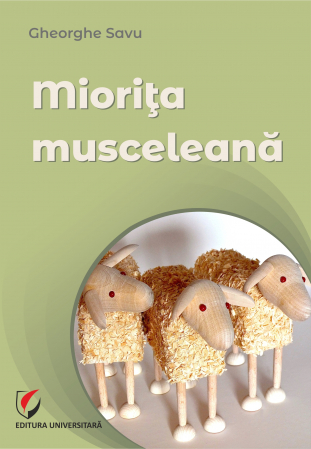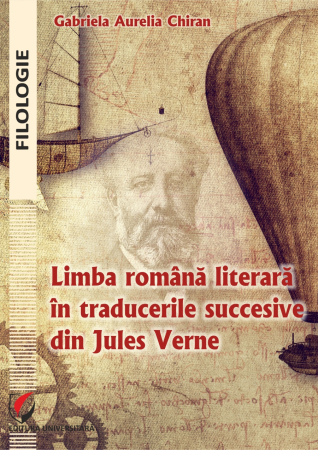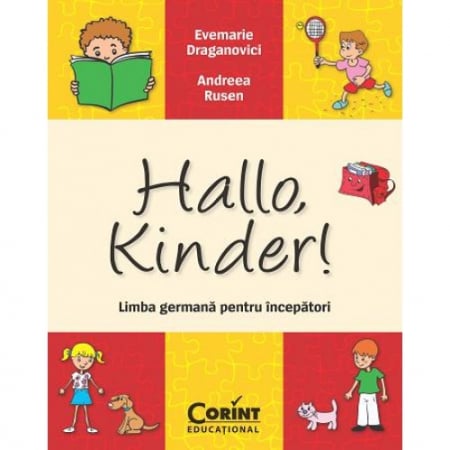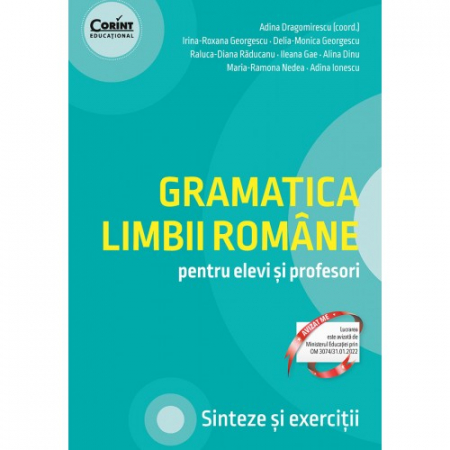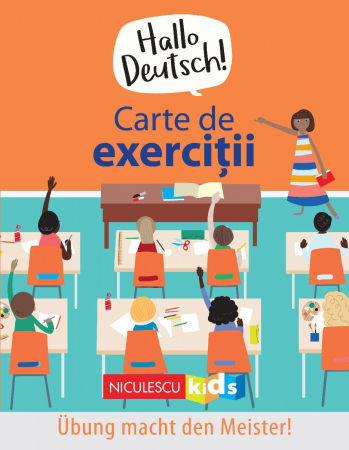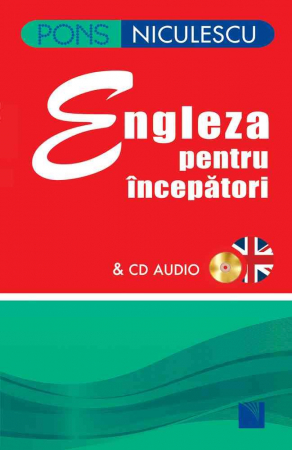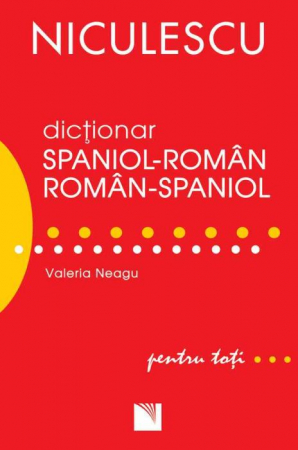ISBN: 978-606-28-0972-0
DOI: 10.5682/978-606-28-0972-0
Publisher year: 2019
Edition: I
Pages:
Publisher: Editura Universitară
Author: Florentina Nicolae, Marina Cap-Bun
- Description
- Download (1)
- Authors
- Content
- More details
- Reviews (0)
This volume brings together the works of the international conference of the Center for Research and Professional Development "Romanian Studies in an International Context" (STUR): Romanian Studies in the Centenary, which took place at the University "Ovidius" in Constanta, between 23-24 November 2018 It is the seventh volume edited under the auspices of STUR, after: Caragiale's News 1912-2012 (2012), Junimea and its impact after 150 years (2013), Literature, theater and film - In honor of the playwright Matei Visniec (2015), Cultures and Eastern European civilizations. In memoriam Aida Todi (2016), Romanian Studies in Inter- and Transdisciplinary Context. In memory of Marin Mincu (2017) and Ovid in Romania (2018). In memoriam Magistri Stephani Cucu.
A decade after the end of the Romanian Studies in the World project, we wanted to observe the new evolutions in the field, the state of the older or newer Romanian studies programs, as well as the way in which this anniversary moment stimulated Romanian cultural and scientific events and projects. national and international.
As in the case of the previous volumes, the texts selected here have been subjected to a specialized expertise, by scientific references of the highest academic exigency, to whom we thank, once again, for the support given to our project: Prof. univ. Dr. Roland Clark, President of the Society for Romanian Studies, University of Liverpool, Prof. univ. Dr. Irina Livezeanu, University of Pittsburgh, Prof. Univ. Dr. Alexandru Gafton, „A.I. Cuza ”from Iasi and Assoc. dr. Elena Ionescu, University of Bucharest.
-
Romanian Studies in the Centenary Year
Download
FLORENTINA NICOLAE
Marina CAP-BUN, Introductory details / 9
Romanian studies in an international context / 11
Roland CLARK, The Society for Romanian Studies, 1973-2019: The Globalization of Academic Associational Culture / 13
Lucian Vasile BAGIU, Felix NICOLAU, The tradition of teaching the Romanian language and culture at the University of Lund / 22
Carmen DARABUS, Romance Studies at the University „St. Kliment Ohridski ”from Sofia / 26
Ciprian - Lucretius SUCIU, Romanian Studies in Greece - a model of European integration through culture / 32
Alina IFTIME, Promoting the Romanian language and culture through courses offered at Ankara University / 44
Cultural and scientific projects / 53
Jozefina KOMPORALY, University of the Arts, London, Mourning as Live Performance: An Occupation of Loss. From the Romanian ‘Toaca’ to Riveting Silence / 55
Emel ISMAIL, Romania Kültür Günü - Romanian Culture Day in Ankara University / 60
Cristina OLTEANU, Beyond and beyond Romania / 64
Lucian CHISU, Chronology of Romanian literary life (CVLR) from the perspective of informatics - An adventure in the unknown? / 72
Gabriela CAZACU, Marioara MIHAI, Romanian contributions to the development of emotional intelligence / 89
Romania during the Centenary / 99
Daniel CITIRIGA, 1918 - Year Zero in Central Europe / 101
Ana-Maria CERCEL, Love of the country in word and deed - Nicolae Iorga / 123
Elena-Ramona SERBANESCU, Takism in the fight for the integration of the Romanian national unity / 131
Literary and theatrical studies / 139
Elena IONESCU, Culture, polyvalent, consistent: Alexandru Cioranescu / 141
Lacramioara BERECHET, The vocation of the sacred, a loving reading of the world / 148
Anamaria CIOBOTARU, Correspondent in exile: Mircea Eliade - Basarab Nicolescu / 155
Sorin MIHAI, Short prose by Ioan Grosan: New borders of the fantastic Eastern European / 163
Mihaela AIRINEI, Marin Sorescu and the meridians of interpretation / 184
Raluca GRIGORE, Wandering in the inner rainbow: Poe and Caragiale / 194
Mihaela CONDRAT, Caragiale or how she predicts a classic Centennial Year (About fake news) / 207
Ana TEISANU (ROTEA), The family as an incubator of mental illnesses: bovarism, histrionics and neurosis in Kiritescu's bourgeois trilogy / 224
Suheda ÖNAL, A Bridge between Children’s Literature and Literary Classics: Young Adult Literature / 233
Robert-Andrei STOICA, Alexandru Lapusneanul - Demon of romanticism or angel of decadence. Lines of congruence between Negruzzi and Eminescu, in a romantic equation solved by the method of decadentism / 242
Atelier Matei Visniec / 257
CAP-BUN Marina, War, our contemporary / 259
Olga DUTU, "The last days of the West" in the vision of Matei Visniec / 276
Mirela Mihaela DOGA, The Last Days of the West / 280
Simona-Nicoleta MINCIU, About words. Case study - the novels "Preventive Disorder" and "Panic Syndrome in the City of Lights" by Matei Visniec / 291
Romanian language and culture / 303
Florentina NICOLAE, The Bestiary of Antim Ivireanul's "Didahiilor" / 305
Ioana VASILOIU, Cultural institutions in the Brancovenean era / 314
Florentina-Gabriela MIHAI (RUSU), Romanian academic grammars - identity landmarks in the centenary year / 320
Simona PALASCA, Local and universal in the imaginary toponymy from the Romanian fairy tale. Research methods / 339
Cristina Ileana ILEA (ROGOJINA), „The girl from the bay”: from Ovid, to the popular and cultured Romanian literature / 349
Latinity and Romanianness / 365
Ioana COSTA, The Latin accent: diacritical marks / 367
Joan Maria JAIME MOYA, En torno a las voces camisia (camisa), camis y camisus en el latín medieval de Cataluña: un posible germanismo a través del céltico / 375
Cosmin CAPRIOARA, Inheritance and innovation: lat. shirt in Romanian / 381
Cultural interference / 397
Daniela CRACIUN, Iuliana DAVID, Elements of Romanian identity and civilization in Italy in the context of migration / 399
Corina-Mihaela APOSTOLEANU, Cultural interferences in the Dobrogea space. The spiritual unity of the Romanian provinces / 412
Olga KAITER, German cultural influences in Dobrogea / 418
Data about authors / 429
A decade after the end of the Romanian Studies in the World project, we wanted to observe the new evolutions in the field, the state of the older or newer Romanian studies programs, as well as the way in which this anniversary moment stimulated Romanian cultural and scientific events and projects. national and international.
As in the case of the previous volumes, the texts selected here have been subjected to a specialized expertise, by scientific references of the highest academic exigency, to whom we thank, once again, for the support given to our project: Prof. univ. Dr. Roland Clark, President of the Society for Romanian Studies, University of Liverpool, Prof. univ. Dr. Irina Livezeanu, University of Pittsburgh, Prof. Univ. Dr. Alexandru Gafton, „A.I. Cuza ”from Iasi and Assoc. dr. Elena Ionescu, University of Bucharest.
A first part of the volume, Romanian Studies in an International Context, illustrates through some relevant case studies, the current situation of our favorite field of research. Roland Clark, President of The Society for Romanian Studies, offers a diachronic look at the evolution of this international professional association of Romanianists, in the period 1973-2019, against the background of the globalization of the associative academic culture. Following are the contributions of some Romanian language lecturers from abroad, who talk about the Romanian study programs in which they work: Lucian Vasile Bagiu and Felix Nicolau approach the Tradition of teaching Romanian language and culture at Lund University, Carmen Darabus presents Romanian Studies at St. Kliment Ohridski from Sofia, Ciprian-Lucretius Suciu describes Romanian Studies in Greece as a model of European integration through culture, and Alina Iftimie talks about Promoting the Romanian language and culture through courses offered at Ankara University.
The Cultural and Scientific Projects section groups some testimonies about events with a significant component of designating Romanian values. Thus, Jozefina Komporaly, professor of performing arts at the University of the Arts, London, is pleasantly impressed by the Romanian team's participation in the international project An Occupation of Loss, Emel Ismail satisfactorily reviews the celebration of Romanian Culture Day at Ankara synthesis of several Romanian events on the occasion of the Centenary of the Great Union, and Lucian Chisu presents a large-scale project of the Institute of History and Literary Theory „G. Calinescu ”- Romanian Academy, Chronology of Romanian literary life (CVLR) from the perspective of informatics.
Due to the specifics of the chosen theme, we could not miss a look at the Centenary moment from the historical perspective, so that the section Romania in the Centenary era groups the plenary conference of Daniel Citiriga, 1918 - Year Zero in Central Europe, as well as the interventions of two master students participating in the round table. "The 1918 Moment in Journalism and Parliamentary Speeches."
Literary and theatrical studies occupy a significant share in this volume and illustrate very diverse concerns, some of the contributors being PhD students, master students and even undergraduate students. To give just a few examples, Elena Ionescu offers an exciting reading of Alexandru Cioranescu's writings, Anamaria Ciobotaru analyzes the correspondence between Mircea Eliade and Basarab Nicolescu, Sorin Mihai proposes a bold analysis of Ioan Grosan's prose in an Eastern European context, Mihaela Airinei studies translations from the work of Marin Sorescu, and Suheda Önal, our Turkish language lecturer, introduces us to Turkish literature for children and adolescents. Also missing from this volume is "Atelierul Matei Visniec", supported by the working group formed in recent years by Marina Cap-Bun, Olga Dutu, Mirela Doga and Simona Minciu.
The section dedicated to the Romanian Language and Culture is also of a great diversity, approaching extremely interesting topics, from the Bestiary of the “Didahiilor” of Antim Ivireanul (Florentina Nicolae) or Cultural Institutions in the Brancovenean era (Ioana Vasiloiu), to the Romanian Academic Grammars understood as identity landmarks in the centenary year (Florentina-Gabriela Mihai Rusu).
Other studies address issues of Latinity and Romanianness, such as Ioana Costa's study of the Latin Accent or the mirror research signed by Spanish researcher Joan Maria Jaime Moya, of the Institución Milá y Fontanals - CSIC (En torno a las voces camisia (camisa), camis y camisus in medieval Latin Catalonia: a possible Germanism through Celtic) and our colleague Cosmin Caprioara (Inheritance and innovation: lat. camisia in limba romana).
The problem of cultural interferences was not neglected either, whether it is the research of the Elements of Romanian identity and civilization in Italy in the context of migration, made by Daniela Craciun and Iuliana David, or the Dobrogea space, investigated, from different perspectives, by Corina-Mihaela Apostoleanu and Olga Kaiter.
We hope that this volume will also be a useful source of information, both for students, masters and doctoral students, as well as for the general public, already familiar with the study volumes of the STUR center.
Marina CAP-BUN
"Ovidius" University of Constanta

6359.png)
![Romanian Studies in the Centenary Year [1] Romanian Studies in the Centenary Year [1]](https://gomagcdn.ro/domains/editurauniversitara.ro/files/product/large/studiile-romanesti-in-anul-centenarului-118-530258.jpg)
